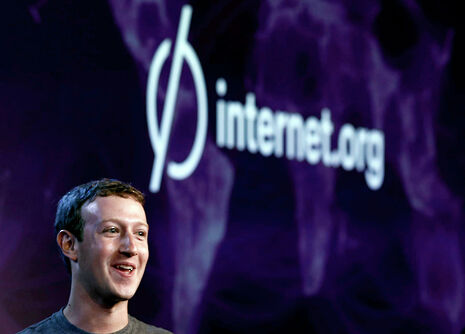Access vs. democracy: the future internet
Jake Scoones discusses the issues behind regulating the digital commons of the future.

On the first of July this year, the UN concluded that access to the internet is a human right. The internet has become one of the most influential entities in the 21st century, becoming an essential part of the lives of virtually all Westerners and a growing number of people in developing countries. But as this ever-growing network continues its worldwide domination, we must ask how such a powerful structure should be regulated and controlled.
The internet was born from a few basic premises: that providers treat all data equally, regardless of destination or source; that access is universal, undiscriminating and free; and that the internet remains decentralised, without an overall controller. In short, big companies should not be able to decide what users see and how they behave. This ‘net neutrality’ sowed the seeds of an online revolution, with previously unfathomable levels of innovation, seen by the exponential growth of the likes of Facebook, Google and Twitter. The power of the internet lies in its democracy: that all users are treated as equals.
The internet is currently structured as a ‘digital commons’ as all users have equal access to its resources. It has thrived to such an extent because ‘commoners’ can build, manage, and regulate content as they wish, without permission. Elinor Ostrom, a Nobel Prize winner in Economics, has written extensively about the ways in which commons can be managed, proposing eight principles (see box). The likes of Wikipedia are microcosms of this - users add new content, edit it and share it, deciding themselves what should be written, how it should be presented, and if the information is correct or not. With the growth of the internet we must ask whether it can continue to be managed as a self-regulated commons, or whether more elaborate regulatory systems are required. Can Ostrom’s eight principles be upheld into the future?
The internet governing bodies for Europe and the USA, BEREC and the FCC, have both recently released their own guidelines for how the internet should be regulated. They both support open and equal access, preventing Internet Service Providers preferentially favouring certain content streams, and only allowing unlawful content to be blocked. Essentially any content (which does not breach national laws) is treated equally. Here rules are applied and sanctions agreed in line with ‘community’ agreed norms, rather than at the discretion of the ISPs, the self-styled “gatekeepers” of the internet.
However, different countries have very different interpretations of lawful content. Regulation can allow for censorship, as the state will decide which websites are allowed. For example, the ‘Great Firewall of China’ blocks all websites from Google, Facebook and more. In other words, “self-determination of the community” is not recognised, and the state takes on the regulatory role.
By contrast, some advocate a completely ungoverned approach, an extension of our basic human rights, affirmed by the UN resolution: “the same rights that people have offline must also be protected online, in particular freedom of expression.” Hence, it is argued, there should be no formal regulation, allowing for users themselves to self-manage with a rights-framework governing the digital commons. However, an internet without regulation would present even greater problems than it would solve.
At the same time, there are issues to resolve before we reach the regulatory stage. Much of the world is not connected to the internet. “All human beings are born free and equal in dignity and rights,” yet many humans are not born connected to the internet. Commercial ventures such as Free Basics, run partially by Facebook, are attempting to connect people from places like India and Nigeria to the internet for ‘free’. These philanthropic enterprises come at a huge cost to the investors, with Facebook funding space satellites to provide connectivity in more rural areas. However their ‘free’ service comes at a price: only 85 services are provided, one of which is (inevitably) Facebook. Are we willing trade access for democracy, and will we be able to buy back the soul of the internet (equality, open access, etc.) after we sell it to Mark Zuckerberg?
With this brave new world comes bold new challenges for the internet: providing universal internet access; tackling online-radicalisation; and dealing with the dark-net with its child-porn and drug sites. Regulation is necessary, but what sort? Each option – whether it be community self-regulation of a ‘commons’, a government-imposed system, or regulation through corporate control – has its own limitations. Do we sacrifice freedom of expression in an effort to tackle ISIS by choosing the collective-commons approach? Do we let companies control our internet access in an effort to speed up universal connectivity, destroying the principles of equality that allowed many of the internet giants to prosper initially? These questions are the ones which will dominate discussions of net neutrality in the coming months and years.
 Comment / Anti-trans societies won’t make women safer14 November 2025
Comment / Anti-trans societies won’t make women safer14 November 2025 News / Controversial women’s society receives over £13,000 in donations14 November 2025
News / Controversial women’s society receives over £13,000 in donations14 November 2025 News / John’s rakes in £110k in movie moolah14 November 2025
News / John’s rakes in £110k in movie moolah14 November 2025 Fashion / You smell really boring 13 November 2025
Fashion / You smell really boring 13 November 2025 Music / Three underated evensongs you need to visit14 November 2025
Music / Three underated evensongs you need to visit14 November 2025









